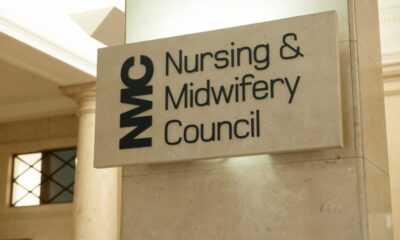Health
Ethiopian-American Becomes First Black Elected University of Cincinnati Student President
Published
6 years agoon

Ethiopian American Sinna Habteselassie swears she never wanted to run for University of Cincinnati student body leadership. She is shy to a fault, and hates public speaking.
But Sinna says the lack of representation at the table forced her to step forward and put herself up for the position. Last month, she was elected the university’s student body president, the first for a black student in the school’s 199-year history.
Sinna, a senior neuroscience and organizational leadership double major became the first black woman and first student of African origin to hold that position.
Initially, Sinna was reluctant to run for the post but was persuaded to do so by her friends and mentors.
‘I hope I do a good job. More than anything, I’d like to see another woman come after me. Women do amazing things in positions of leadership.’
“I said, ‘I have the ability to do it. I can do it,'” she told the media last week. “We’re not doing enough to make sure marginalized people have a seat at the table. Hopefully, my presence will encourage other people to participate.”
Her election is already paying dividends for the school’s minority and low income population as she has been using her platform to advocate for issues such as mental health and college affordability to lower student debts for low income students.
“There was a lot of pressure and significance knowing she would be the first Black woman to hold this position,” said Peyton Wu, Program Coordinator in UC’s Office of Ethnic Programs & Services, and mentor to Habteselassie.
“But the fact that she talks so openly about her identity and how that influences how she wants to lead sets a different kind of precedent. She doesn’t shy away from her identity,” said Wu.
See Also: Ethiopia Makes History, Elects First Female President.
Sinna’s parents emigrated from Ethiopia in the 1980s and settled in Centerville, which is south of Dayton, Ohio. Sinna was born there.
She said she initially wanted to study medicine but after traveling to Africa a few times to perform community outreach, she decided to focus on public policy, health and international law.
After graduation, she plans to continue her education in Washington D.C., with the aim of eventually joining one of the global non profits.
“I hope I do a good job. More than anything, I’d like to see another woman come after me,” Sinna said of her current leadership position at the University of Cincinatti.
“Women do amazing things in positions of leadership,” Sinna said.
The Nigerian Community Staff posts and edits content on The Nigerian Community website

Business & Technology
UK Nursing Council Probes 512 Nigerian Nurses Over Fraudulent Exam Results
Published
2 years agoon
May 5, 2023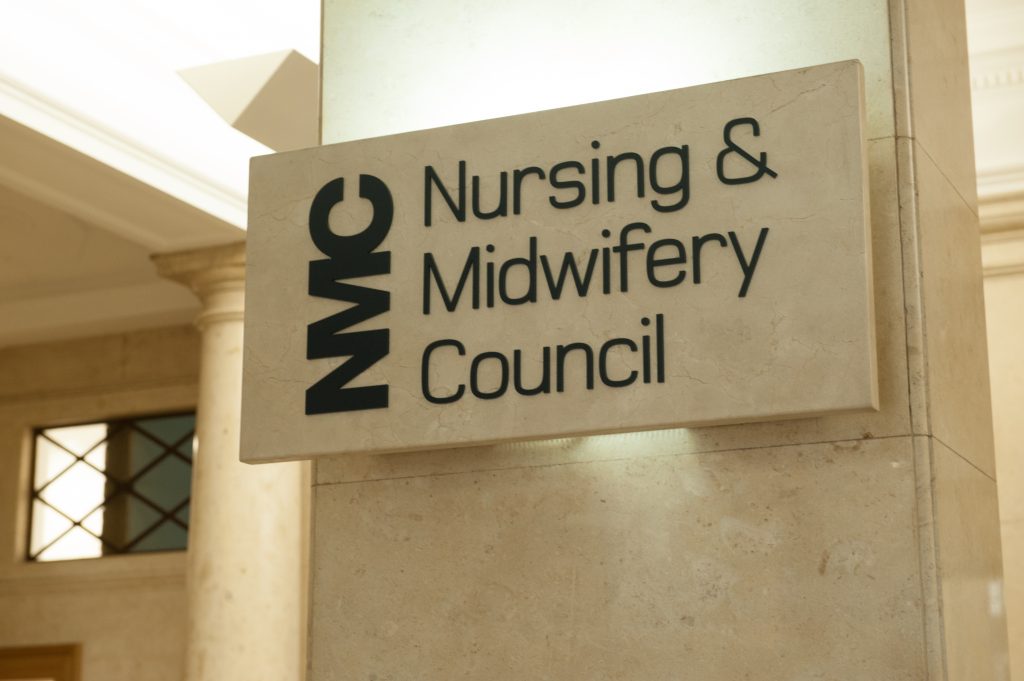
The Nursing and Midwifery Council of the United Kingdom has notified 512 registered nurses that they are being probed for illegally obtaining their registration.
The council said Friday that there is a high probability that the Nigerians committed fraud in obtaining their credentials.
According to the statement by the Council, to make sure internationally educated professionals have the right knowledge and skills to provide high-quality care in the UK, they must take a two-part test of competence before joining our register: a computer-based test (CBT) usually sat in their home country, and a practical test (OSCE) in the UK.
An organization called Pearson VUE runs the CBT program on the NMC’s behalf.
The Council said they were recently alerted to anomalous data “at one of its third-party CBT test centers in Ibadan, Nigeria. Pearson VUE stopped testing at this center immediately.”
“A total of 512 people on our register (around five percent of all the professionals on our register who qualified in Nigeria) took their CBT at this test center. We’re writing to them to set out what’s happened, and to tell them we’re opening cases to determine whether or not they gained fraudulent or incorrect entry to the register.
“More people have applied to join the register but are not yet on it, therefore they can’t practice as a nurse or midwife. We’ve paused their applications. We’re writing to these applicants to ask them to retake the test, and to request more information that we’ll use to make a final decision about their application.
“Our paramount concern is to maintain the integrity of the register to protect the public. At the same time, it’s critical we approach any investigations about individuals objectively and transparently, avoiding any unfair discrimination,” the Council said.
The Council said Pearson VUE has reviewed all data relating to the NMC’s CBT from every test site globally, and there is no evidence of similar activity at any other site.
According to Andrea Sutcliffe, NMC Chief Executive and Registrar, “data from one test site in Nigeria is unusual and concerning. We have regulatory processes which we will now follow, and if necessary, we can refuse registration or remove people from our register, to protect the public and people who use health and care services.
“We know the public and people who use services may find this worrying. This affects just over 500 out of the 771,445 professionals on our register. They will all have passed the practical test in this country before they were accepted onto the register and to date no concerns have been referred to us about their fitness to practice.
“We should remember that thousands of nurses and midwives who were educated overseas have safely joined our register recently and continue to provide safe, effective and kind care across the UK.”
The NMC uses a Test of Competence (ToC) to assess the skills and knowledge of people applying to join our register from overseas.
This has two main parts: a multiple-choice computer-based test known as the CBT which applicants usually sit in their home country; and a practical test known as the OSCE which people take in the UK.
The CBT is split into two parts: Part A covers numeracy, and Part B covers clinical questions for nursing or midwifery.
A company called Pearson VUE runs the CBT. They’ve been the NMC’s test provider since 2014, when we introduced the test.
A total of 1,970 candidates took their CBT at this center, of whom 512 are on the NMC register.
Pearson VUE immediately suspended tests at the Ibadan center. The NMC has since been working urgently with them to examine data and evidence about this. The NMC is also scrutinizing the full applications of those who have joined the register.
The NMC said it is writing to some applicants and professionals on their register to set out what’s happened and what it means for them. The NMC is also opening some cases to determine whether individuals gained fraudulent or incorrect entry to the register.
Sutcliffe said the NMC is giving the nurses involved the option to retake the test “and our test provider is covering the candidate exam fee costs.
“The NMC can’t make people resit – it will be their decision. If somebody does retake and passes, it won’t guarantee that they’ll gain entry to the register or be able to stay on it, but it will form part of the information the NMC will use to make a final decision.
“The NMC will consider the need for interim orders on an evidenced basis as part of each case we’re opening to determine whether or not individuals gained incorrect or fraudulent entry to the register.
“We’re looking into concerns and if necessary to manage risk, we can apply to panels to restrict individuals’ practice.”
The NMC confirmed that at this stage, “no fitness to practice concerns have been raised about anyone on the register in this group. But clearly, if someone has gained entry to the register incorrectly or fraudulently then the NMC will need to take action.
She said the NMC is approaching investigations about individuals objectively and transparently, avoiding any unfair discrimination.
“It has not yet made any determinations about individuals. Unless the NMC decide there is sufficient evidence to seek an interim suspension order, individuals will be able to continue to work,” she added.
Community Events
Nigerian Politician, Wife Jailed in London for Illegal Kidney Plot
Published
2 years agoon
May 5, 2023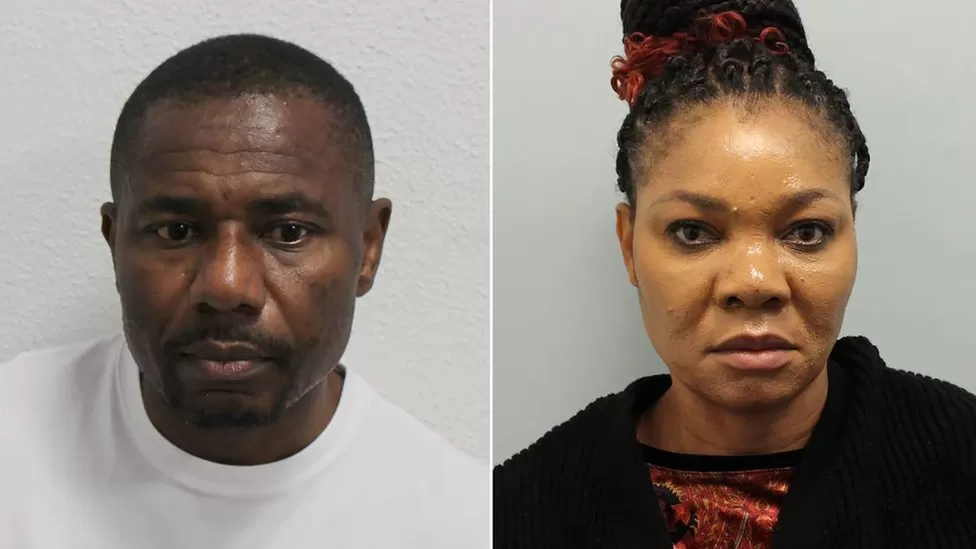
The fall from grace of former Nigerian Deputy Senate President Ike Ekweremadu is now complete after he was sentenced by a British court to nine years in prison for illegal organ trafficking plot.
The court also sentenced his wife, Beatrice, to four years six months while the medical doctor who acted as the ‘middleman’ in the whole sordid episode, Dr. Obinna Obeta received 10 years and a suspension of his medical license.
Ekweremadu, his wife and Obeta were found guilty last month by the British court for criminally conspiring to bring a 21-year-old Lagos cellphone street vendor to London to donate organs to Ekweremadu’s daughter, Sonia who needed kidney transplant to stay alive.
The London court heard how the Ekweremadus’ presented the street vendor as a cousin of Sonia’s in a bid to convince the doctors with the Royal Free Hospital in London to allow the nearly $100,000 operation to proceed.

Sonia Ekweremadu after her parent’s sentencing.
The street vendor was said to have been offered up to $10,000 to become a donor after Sonia was forced to abandon her Master’s degree in film program at Newcastle University following a kidney failure.
The prosecutor, Hugh Davies KC told the court that the Ekweremadus and Obeta had treated the man and other potential donors as “disposable assets – spare parts for reward”.
During a televised sentence hearing, Mr Justice Johnson recognised Ike Ekweremadu’s “substantial fall from grace”.
Lynette Woodrow, deputy chief crown prosecutor and national modern slavery lead at the Crown Prosecution Service (CPS), said it had been “our first conviction for trafficking for the purposes of organ removal in England and Wales”.
She said it highlighted an important legal principle which made it irrelevant whether the trafficking victim knew he was coming to the UK to provide a kidney.
“With all trafficking offences,” Ms Woodrow said, “the consent of the person trafficked is no defense. The law is clear; you cannot consent to your own exploitation.”
Health
WHO Says Africa Could Face COVID-19 Catastrophe with 10 Million Severe Cases, 3.3 Million Death
Published
5 years agoon
April 20, 2020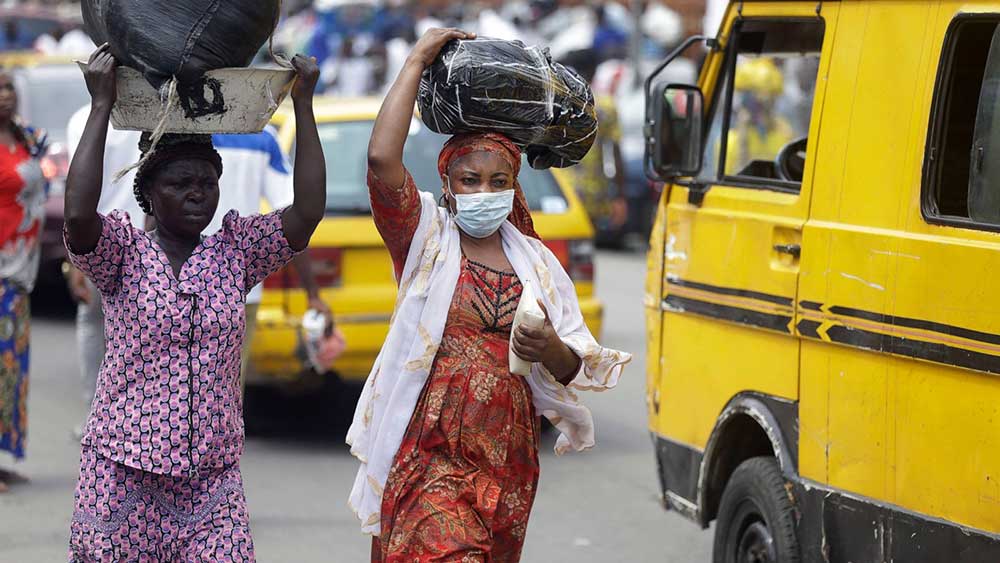
The World Health Organization (WHO) warned this week that Africa could become the next epicenter for coronavirus (COVID-19) infections with the potential to kill over three million people on the continent.
In sounding the alarm, WHO said up to 10 African countries do not have ventilators, oxygen and masks, and that could result in major catastrophe should COVID-19 pandemic worsen on the continent.
Michael Yao, WHO’s Emergency Operations Manager for Africa, said Africa could see 10 million or more COVID-19 cases in the next six months based on their current projections, unless drastic actions are taken.
United nations Economic Commission for Africa in a report said “anywhere between 300,000 and 3.3 million African people could lose their lives as a direct result of COVID-19, depending on the intervention measures taken to stop the spread.”
The report laid out a worse case scenario with 3.3 million people facing death and 1.2 billion infections.
“Africa is particularly susceptible because 56 per cent of the urban population is concentrated in overcrowded and poorly serviced slum dwellings (excluding North Africa) and only 34 per cent of the households have access to basic hand washing facilities,” the report said.
“In all, 71 per cent of Africa’s workforce is informally employed, and most of those cannot work from home. Close to 40 per cent of children under 5 years of age in Africa are undernourished,” the report added.
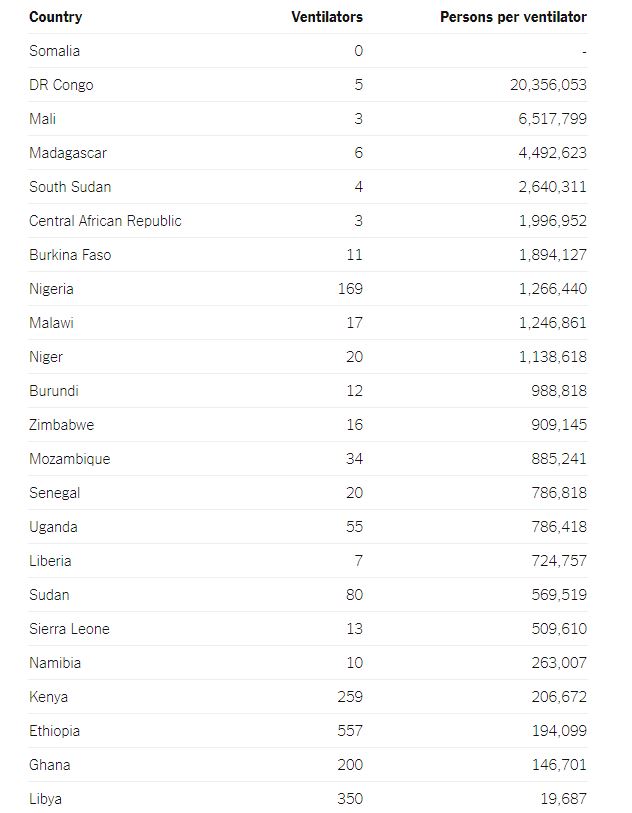
The UN report laid out a grim scenario for Africa.
“Of all the continents Africa has the highest prevalence of certain underlying conditions, like tuberculosis and HIV/AIDS.
“With lower ratios of hospital beds and health professionals to its population than other regions, high dependency on imports for its medicinal and pharmaceutical products, weak legal identity systems for direct benefit transfers, and weak economies that are unable to sustain health and lockdown costs, the continent is vulnerable.”
Even under the best case scenario, where Africa does everything right, the report said over 300,000 Africans could still perish from COVID-19.
The New York Times in a devastating report over the weekend reported that 41 African countries have less than 2,000 working ventilators.
According to The Times, “South Sudan, a nation of 11 million, has more vice presidents (five) than ventilators (four). The Central African Republic has three ventilators for its five million people.
“In Liberia, which is similar in size, there are six working machines — and one of them sits behind the gates of the United States Embassy.
“In all, fewer than 2,000 working ventilators have to serve hundreds of millions of people in public hospitals across 41 African countries…Ten countries in Africa have none at all.”
“We are now failing. Let me use that word deliberately,” epidemiologist Mahad Hassan, a member of the Somalian government’s coronavirus task force, told The Washington Post of the country’s COVID-19 response. “At our main treatment center, almost nothing is there. Last time I visited, beds, only beds.”

The Trend of Presiding Over Nigeria from Europe Continues with Tinubu

UK Nursing Council Probes 512 Nigerian Nurses Over Fraudulent Exam Results

Nigerian Politician, Wife Jailed in London for Illegal Kidney Plot

Shock Poll! Majority of Nigerians Love Donald Trump, Give the U.S. President Thumbs Up

Urualla Action Women Organization Launches in Houston, Texas

FBI Arrests Nigerians, Others in Massive $30 Million Romance, Retirement Account Fraud
Trending
-

 Other News6 years ago
Other News6 years agoShock Poll! Majority of Nigerians Love Donald Trump, Give the U.S. President Thumbs Up
-
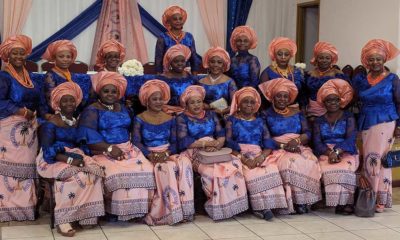
 Community Events6 years ago
Community Events6 years agoUrualla Action Women Organization Launches in Houston, Texas
-
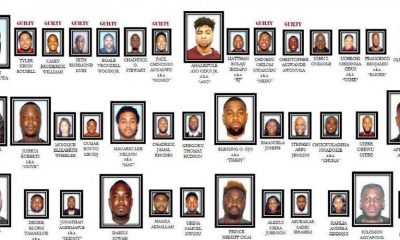
 Business & Technology5 years ago
Business & Technology5 years agoFBI Arrests Nigerians, Others in Massive $30 Million Romance, Retirement Account Fraud
-

 Community Events6 years ago
Community Events6 years agoFestival Organizers Invite Houstonians to Celebrate Nigeria’s Independence
-

 Entertainment & Fashion6 years ago
Entertainment & Fashion6 years agoMeet Ego Nwodim, the Nigerian-American taking Hollywood by Storm
-
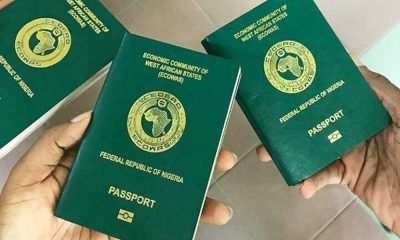
 Community Events5 years ago
Community Events5 years agoNigerian Consulate to Conduct Nigerian E-Passport Intervention in Houston, TX
-

 Community Events6 years ago
Community Events6 years agoNigeria Cultural Parade Hopes to Educate Americans about Nigeria
-

 Community Events6 years ago
Community Events6 years agoCultural Dance, Gele Contest, Products Exhibition at Nigerian Day

